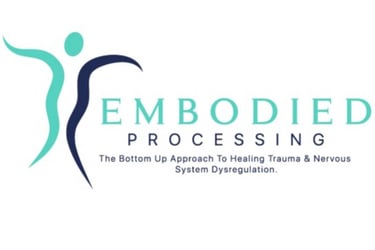Letting Go of the Need to Fix: Finding Freedom in Connection
Have you ever found yourself desperately wanting to make things better for someone you love? Maybe a friend is struggling, or a family member is upset, and you instinctively jump in—offering advice, solutions, or trying to steer them toward a more positive outlook. It comes from a place of care, but let’s be honest—it can also feel exhausting and frustrating, especially when our efforts don’t seem to help. People with chronic pain can often tend to try to fix others, and it is certainly an issue I have had to deal with.
PEOPLE PLEASINGPERSONALITY TRAITS
Maria Hancock
3/25/20253 min read


Letting Go of the Need to Fix: Finding Freedom in Connection
Have you ever found yourself desperately wanting to make things better for someone you love? Maybe a friend is struggling, or a family member is upset, and you instinctively jump in—offering advice, solutions, or trying to steer them toward a more positive outlook. It comes from a place of care, but let’s be honest—it can also feel exhausting and frustrating, especially when our efforts don’t seem to help. People with chronic pain can often tend to try to fix others, and it is certainly an issue I have had to deal with.
In fact, recently I realised I still hadn't overcome this tendency. My daughter was sharing something that was upsetting her, and before she even finished, I jumped in with advice. She stopped me and said, “Mum, you don’t need to fix this for me.” What she really needed was for me to listen—not to solve. It was a powerful reminder that sometimes, the most supportive thing we can do is simply be present.
Why Do We Feel Responsible for Others' Emotions?
As much as we want to help, the truth is, we cannot control how others feel. Yet, many of us carry this deep urge to manage other people’s emotions. Why?
The way we were raised shapes our emotional responses.
If you grew up being praised for keeping the peace or scolded for expressing your own emotions, you may have learned that managing others’ feelings keeps you safe or valued.
If you had emotionally unpredictable caregivers, you may have developed hyper-awareness of others' moods as a survival mechanism.
People-Pleasing Tendencies
If your self-worth has been tied to making others happy, you may struggle to separate your emotions from theirs.
A fear of conflict or rejection can lead to an unconscious drive to regulate others’ feelings.
Anxiety and the Illusion of Control
When the world feels uncertain, managing others’ emotions can feel like a way to create stability.
By keeping people around us happy, we may (unknowingly) be trying to minimize our own stress or discomfort.
Societal and Cultural Expectations
Many cultures and family dynamics reinforce the idea that it’s our duty to ensure others are emotionally comfortable.
Women, in particular, are often socialized to be caregivers and emotional managers in relationships.
Trauma and Codependency
Past trauma, especially in relationships, can heighten our sense of responsibility for others’ well-being.
In codependent dynamics, one person’s emotional stability often depends on the other, reinforcing the belief that we must "fix" things to maintain harmony.
Breaking Free: How to Let Go of Emotional Responsibility
So, how do we stop carrying the weight of other people’s emotions? Here are some shifts that can help:
Recognize What’s Yours (and What Isn’t) – Others’ emotions belong to them, just as yours belong to you. No matter how much we try, we cannot control how someone else feels. Instead of striving to fix, we can focus on acceptance—both of others and ourselves.
Set Healthy Boundaries – Supporting someone doesn’t mean absorbing their struggles. It’s okay to be there for others while also protecting your own emotional well-being.
Practice Self-Compassion – Your worth is not measured by how well you manage other people’s feelings. Be kind to yourself as you unlearn old patterns and embrace a healthier way of relating.
Stay Present with Mindfulness – Worrying about others can keep us stuck in our heads. Practicing mindfulness—through meditation, deep breathing, or simply pausing to check in with ourselves—helps us observe without the need to control or fix.
Focus on Connection, Not Solutions – Instead of jumping in with advice, try simply being there. Listen. Validate their feelings. Often, the most healing thing we can do is to allow someone to feel truly heard.
Seek Support for Yourself – If letting go of emotional responsibility feels difficult, therapy, journaling, or confiding in a trusted friend can help.
The Freedom of Letting Go
When we stop trying to control how others feel, we create space for deeper, more authentic relationships. We release burdens that were never ours to carry, and in doing so, we find a peace we didn’t even realize we were missing.
So the next time you feel the urge to fix, take a deep breath. Remind yourself: Your job isn’t to change someone’s emotions—it’s to be present, compassionate, and accepting. And in that, you’ll find true connection—not just with them, but with yourself.






TMS, PPD, Mind-Body Syndrome, Perceived Danger Pain, Neuroplastic Pain Syndrome, Chronic Pain Recovery Practitioner in Horley, Surrey, UK and Online Internationally. (English speaking only).
